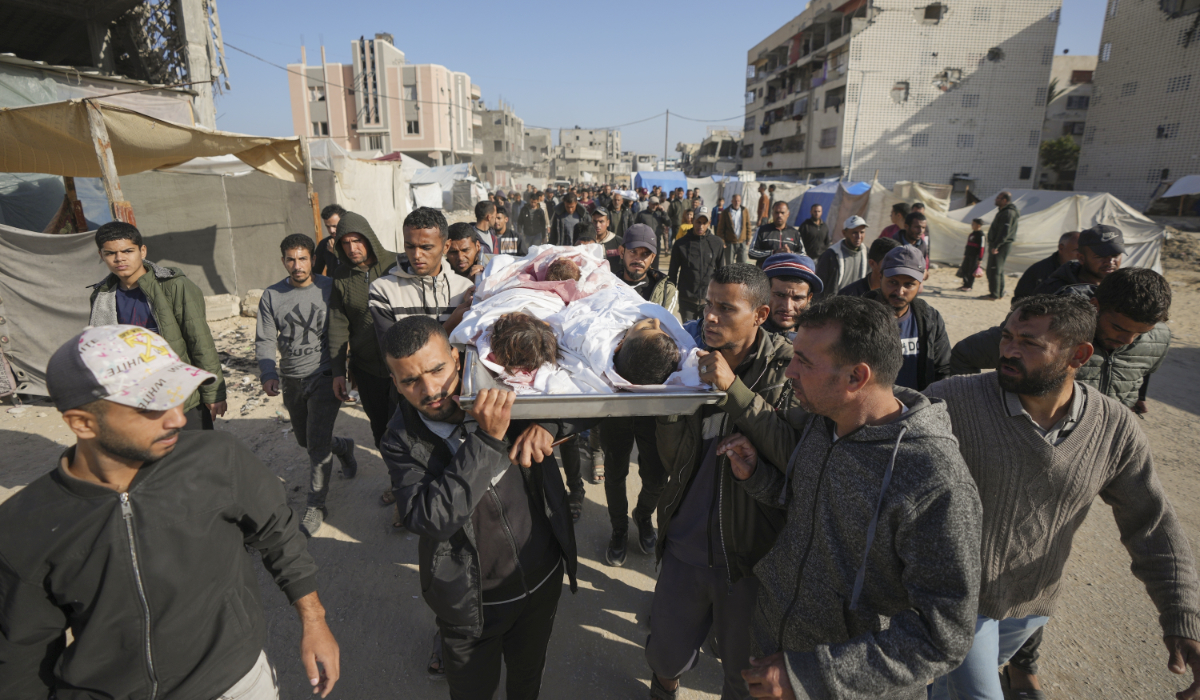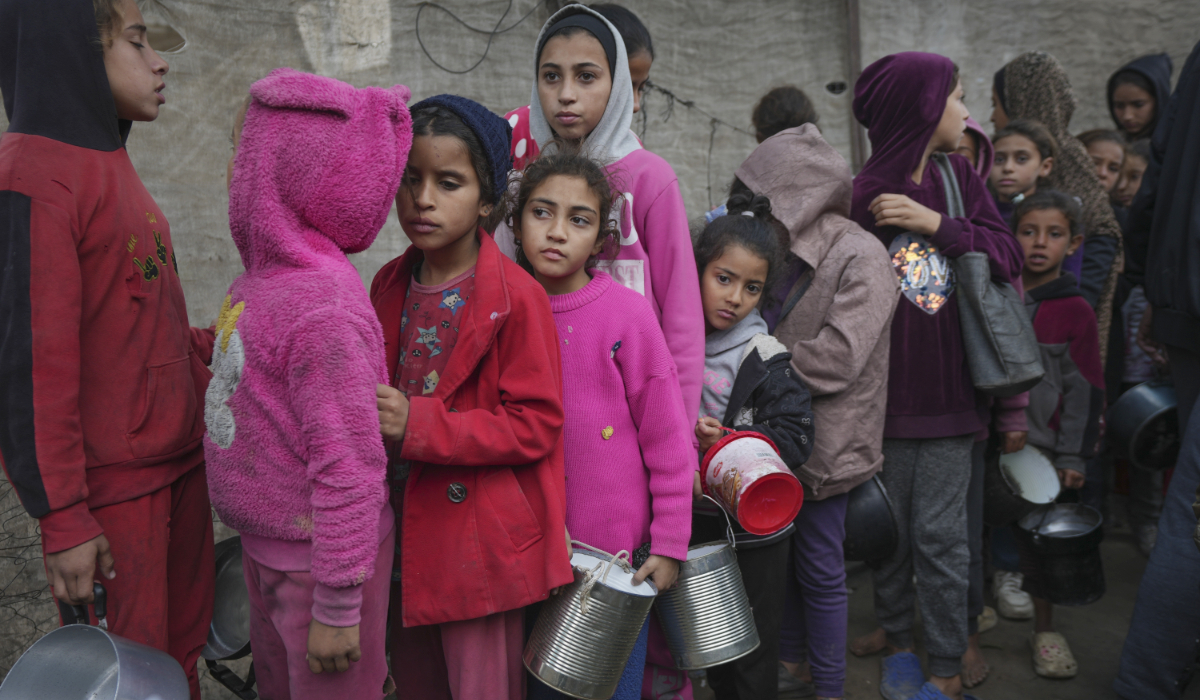KFAR KILA, Lebanon: Israeli troops fired at residents of south Lebanon on Sunday, killing two and wounding 32, health officials said, as hundreds of people tried to return to their homes on the deadline for Israeli forces to withdraw from the area.
Israel was all but certain to miss Sunday’s deadline, which is part of a ceasefire agreement that ended its war with the Iran-backed Hezbollah group two months ago.
The deal that took effect on November 27 said the Lebanese army was to deploy alongside United Nations peacekeepers in the south as the Israeli army withdrew over a 60-day period.
That period ends on Sunday.
Lebanon’s health ministry said Israeli forces had opened fire in at least two border towns on “citizens who were trying to return to their villages,” killing two and wounding 32.
The ministry had previously said the “aggression” had centered on the two villages of Houla and Kfar Kila.
Earlier, Lebanon’s official National News Agency had reported that Israeli fire wounded several people in Kfar Kila “who crossed the barrier and checkpoint put in place by the occupation army,” referring to Israel.
Israeli military spokesman Avichay Adraee issued a message earlier on Sunday to residents of more than 60 villages in southern Lebanon, including Kfar Kila and Houla, telling them not to return.
AFP journalists said convoys of vehicles carrying hundreds of people were trying to return to several villages despite the military’s continued presence.
AFPTV live images from Kfar Kila showed crowds gathered, some with yellow Hezbollah flags, near Lebanese security vehicles that blocked a road near a petrol station.
Beyond them sat another military vehicle on an empty stretch of the road.
On Saturday, the Lebanese army said a delay in implementing the agreement was the “result of the procrastination in the withdrawal from the Israeli enemy’s side.”
Israeli forces have left coastal areas of southern Lebanon, but are still present in areas further east.
The ceasefire deal stipulates that Hezbollah pull back its forces north of the Litani River — about 30 kilometers (20 miles) from the border — and dismantle any remaining military infrastructure in the south.
But Israeli Prime Minister Benjamin Netanyahu’s office said on Friday that “the ceasefire agreement has not yet been fully enforced by the Lebanese state,” so the military’s withdrawal would continue beyond the Sunday deadline.
“The withdrawal process is conditional upon the Lebanese army deploying in southern Lebanon and fully and effectively enforcing the agreement, with Hezbollah withdrawing beyond the Litani River,” a statement from Netanyahu’s office said.
It added that “the gradual withdrawal process will continue in full coordination with the United States,” a key ally and one of the monitors of the ceasefire.
The Lebanese army said it was “ready to continue its deployment as soon as the Israeli enemy withdraws.”
Hezbollah lawmaker Ali Fayad said on Saturday that Israel’s “excuses” were a pretext to “pursue a scorched earth policy” in border areas that would make the return of displaced residents impossible.
Lebanese President Joseph Aoun, who took office earlier this month, spoke on Saturday with his French counterpart Emmanuel Macron, whose government is also involved in overseeing the truce.
According to a statement from his office, Aoun spoke of the “need to oblige Israel to respect the terms of the deal in order to maintain stability in the south.”
Aoun also said Israel must “end its successive violations, including the destruction of border villages... which would prevent the return of residents.”
Macron’s office, in its summary of the conversation, said the French president had called on all parties to the ceasefire to honor their commitments as soon as possible.
On January 17, UN Secretary-General Antonio Guterres called for Israel to end its military operations and “occupation” in the south.
The fragile ceasefire has generally held, even as the warring sides have repeatedly traded accusations of violating it.
The Israeli military has continued to carry out frequent strikes that it says targeted Hezbollah fighters, and Lebanese state media has reported that Israeli forces were carrying out demolitions in villages they control.
The November 27 deal ended two months of full-scale war that had followed months of low-intensity exchanges.
Hezbollah began trading cross-border fire with the Israeli army the day after the October 7, 2023 attack on Israel by its Palestinian ally Hamas, which triggered the war in Gaza.
Israel intensified its campaign against Hezbollah in September, launching a series of devastating blows against the group’s leadership and killing its longtime chief Hassan Nasrallah.
Hezbollah warned on Thursday that “any violation of the 60-day deadline will be considered a flagrant violation” of the ceasefire agreement and “an infringement on Lebanese sovereignty.”
The group refrained from any threat to resume attacks on Israel but said the Lebanese state should use “all means necessary... to restore the land and wrest it from the clutches of the occupation.”




























